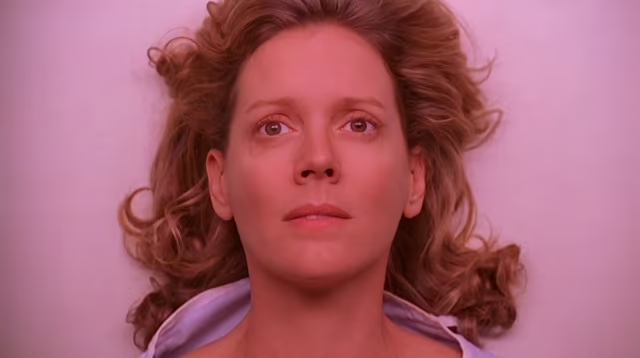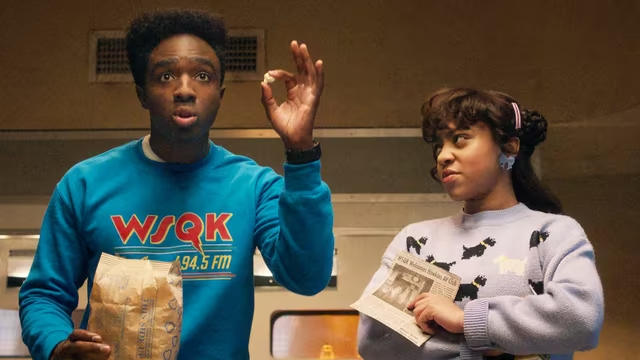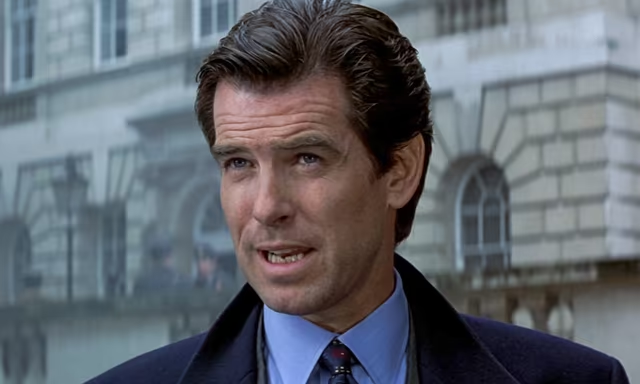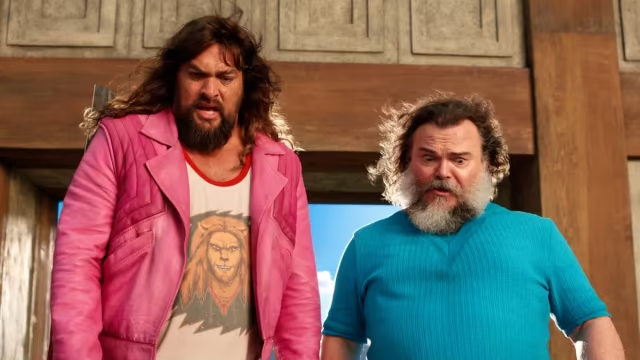If you click on a link and make a purchase we may receive a small commission. Read our editorial policy.
Combined WGA/comic writers picket line shows the connection between industry woes
Comic writers support WGA members in their fight, seeing a reflection of their own concerns

As the Writers Guild of America strike enters its fourth month, a group of comic creators took to the picket lines in Los Angeles not only to support their film and television writing peers, but also to make a point of recognizing that the issues at stake aren’t limited to just those industries — but that they could be the future of the comic book industry, as well.
“I think we’re incredibly lucky that writers for film and television have a union to be able to protect them,” Charlie Stickney (Scout Comics’ White Ash) told Popverse’s Ashley V. Robinson during the Thursday picket at the NBCUniversal studio gate on Lankershim Boulevard in L.A. “I wish the same thing was able to exist in the comic space, to make sure creators are not being taken advantage of, or at least [that] there was someone there to help provide them with guidance. I’m really thankful than the WGA is an organization there to protect writers in this space; hopefully, one day, more people in animation can be included, and maybe one day — hope and dream — we could invite in writers and artists from the comic industry.”
There’s a long, unhappy history of the comic book industry trying to unionize, and it almost never ends well for those making the attempt — that the Image Comics’ workers’ Comic Book Workers United is the first major union of comic workers in North America, says something especially as it (a) only was formed in 2021, and (b) still is not a union of comic book creators. This despite the fact that the comic industry is one as rife with exactly the kinds of mistreatment of creative talent that the WGA is currently protesting about, as the recent Twitter hashtag #comicsbrokeme made clear.
While the specific mechanism responsible for the WGA strike doesn’t exist inside the comics industry — the WGA and the Alliance of Motion Picture and Television Producers failed to come to an agreement on working conditions that would allow them to create a new contract to allow the continuation of writing work; without that contract, work stopped when the previous contract expired at midnight, May 1, 2023 — the issues separating the two parties are also significant problems inside the comic book industry, as well: low wages, a lack of sufficient royalties especially when it comes to digital distribution of work, and a lack of safeguards against AI-generated work, specifically with regards to its potential for replacing human creators or devaluing their work.
Each of these topics have been under discussion amongst comic creators in recent years, and it’s fair to say that any victory won by the WGA to protect creator rights and livelihoods as the result of the current work stoppage will be used as a benchmark and touchstone for comic creators when looking to fight similar battles with publishers. With both Marvel and DC owned by major studios, it's not impossible to imagine one of those companies being willing to move to benchmarks closer to WGA guidelines... and if that happened, the entire industry might end up following.
Certainly, the 40 or so writers gathered for the NBCUniversal picket saw a connection between the industries and their respective struggles. “I’m here at the Universal gate representing the Animation Guild and comic book writers everywhere, all of whom have an even rougher deal than the WGA,” said David Avallone (Bettie Page Unbound, Elvira Meets Vincent Price). “We’re out here fighting for the WAG and SAG, because this is the tip of the spear. This is where it happens. I think there’s a big labor awakening happening in this country, and people are waking up to the idea that the game is rigged and six people get $400 million a year, and the rest of us struggle to pay the rent. We’re out here fighting so that we don’t have to struggle to pay the rent, pay our health care and make the things that everybody was enjoying during that whole COVID thing.”
“I think there’s a giant movement, which is great right now, where writers, actors, artists, everybody — they need to stop being looked at as a cost, and actually be recognized for the talent and service that they provide; they’re actually the ones creating the art that everyone consumes, so they deserve fair compensation,” added Chris Mancini (Long Ago & Far Away, Rise of the King-Fu Master). “They deserve a share of the profits, and they deserve to be part of the entire process, not just basically hired at the cheapest rate and thrown away.”
Not all of the comic creators who showed up for the picket line — a line-up that included Green Lantern writer Jeremy Adams, Marc Bernardin (Adora and the Distance), and former Enter the Popverse guest Pornsak Pichetshote — were WGA members, but according to strike captain Erin Conley, that’s actually a plus, because it draws more attention to the strike and the issues behind it as it continues towards its 100th day.
“We’ve done a lot of special picket themes over these past, now, 87 days, and today we had comic creators meeting up,” Conley explained. “I think there’s a ton of people in our union who also work in comics, so there’s a lot of interest in this event. It was great to see everyone get to come together, and it always boosts out turnout here, it boosts morale, and it just keeps the pickets interesting for people after all this time.”
After more than three months, things might actually be beginning to change in the stand-off between the WGA and the AMPTP, with a new meeting scheduled for the end of this week to restart negotiations. The WGA remains firm in its standing, however, aware that a victory in its struggle is very likely something that could herald changes beyond its original scope. Including, maybe… if we’re lucky… creating a conversation that will eventually lead to better working conditions for comic book creators, as well.
Want to know more about the background of the WGA strike? We’ve got you covered. While you’re thinking about such things, maybe learn about the SAG-AFTRA strike, as well.
Follow Popverse for upcoming event coverage and news
Find out how we conduct our review by reading our review policy
Let Popverse be your tour guide through the wilderness of pop culture
Sign in and let us help you find your new favorite thing.
















Comments
Want to join the discussion? Please activate your account first.
Visit Reedpop ID if you need to resend the confirmation email.